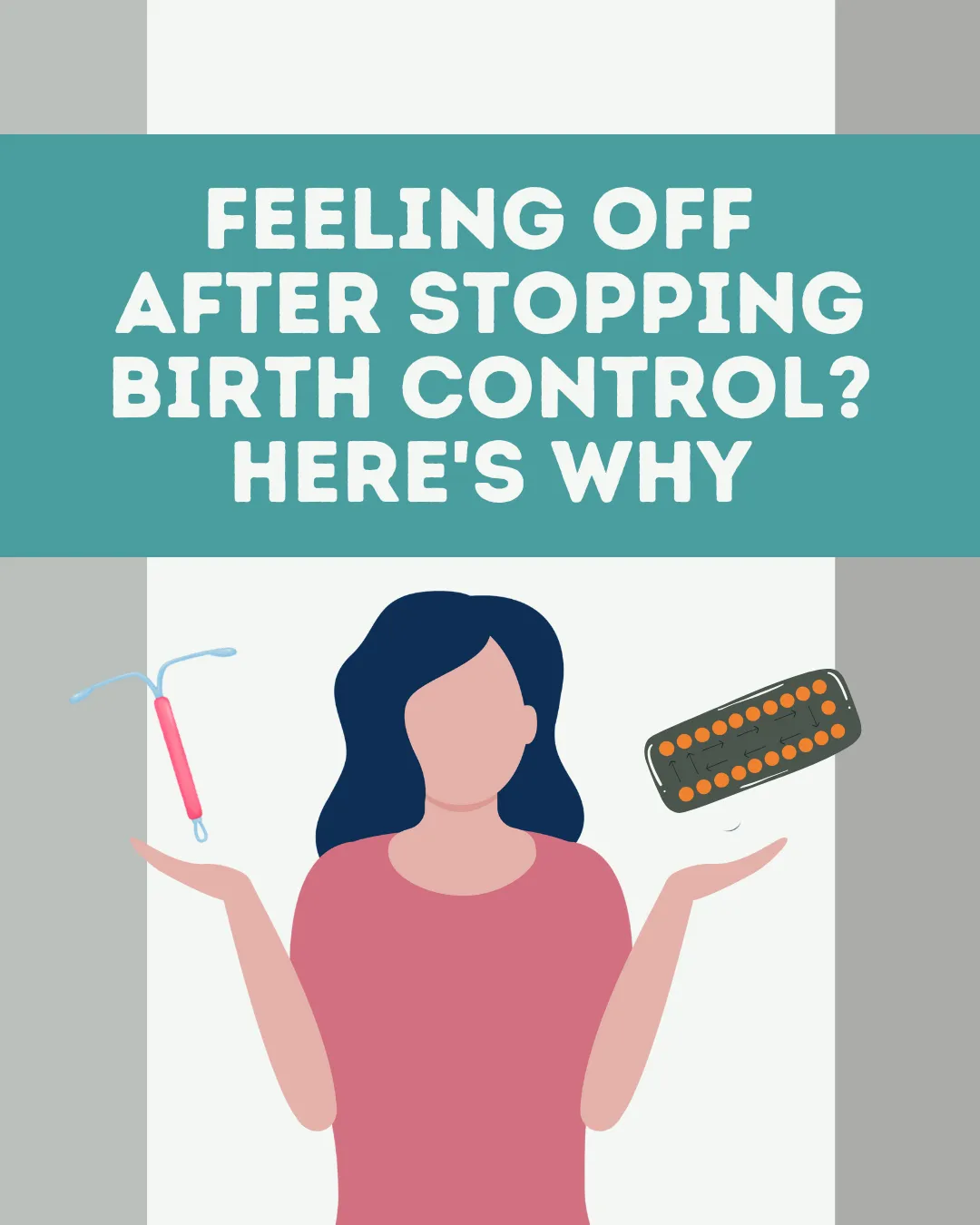Stay informed with the latest insights and resources
We share valuable tips, success stories, and practical advice to support you on your wellness journey.

How to Heal Your Gut and Balance Hormones After Birth Control
Introduction
Coming off hormonal birth control can bring a wave of unexpected changes. For some women, it's a smooth transition. But for many, symptoms like acne, bloating, fatigue, mood swings, or irregular cycles appear weeks—or even months—later. The root cause? Your gut may be struggling to recalibrate.
Hormonal contraceptives don’t just influence your reproductive system. They impact your gut microbiome, detox pathways, and even your mood-regulating neurotransmitters. If you feel off balance after stopping birth control, supporting your gut health is a powerful first step toward restoring hormonal harmony.
How Birth Control Affects the Gut
1. Disrupts the Microbiome
Hormonal birth control can alter the diversity and composition of gut bacteria. This dysbiosis can lead to increased inflammation, poor nutrient absorption, and hormone imbalances.
2. Increases Intestinal Permeability
Studies show that synthetic hormones can weaken tight junctions in the gut lining, leading to "leaky gut." This allows toxins and undigested food particles to enter the bloodstream, triggering immune responses and systemic inflammation.
3. Slows Hormone Detoxification
The liver and gut work together to metabolize and eliminate excess estrogen. Birth control can burden detox pathways, resulting in estrogen dominance symptoms like PMS, acne, and heavy periods once you stop taking it.
Signs Your Gut Needs Support Post-Birth Control
- Acne flare-ups
- Bloating or gas
- Irregular or painful periods
- Mood swings or increased anxiety
- Fatigue or brain fog
- New food sensitivities
Steps to Heal Your Gut and Rebalance Hormones:
1. Rebuild the Microbiome
Focus on fermented foods like sauerkraut, kimchi, kefir, and yogurt. A high-quality probiotic supplement can also help restore healthy bacterial balance.
2. Eat More Fiber
Fiber feeds your beneficial gut bacteria and helps estrogen bind and exit through the stool. Include flaxseeds, chia seeds, leafy greens, cruciferous vegetables, and berries.
3. Support Liver Detox
The liver plays a key role in hormone clearance. Nutrients like B vitamins, magnesium, and antioxidants (like glutathione and vitamin C) are essential. Incorporate foods like beets, artichokes, lemon water, and leafy greens.
4. Reduce Inflammation
Cut back on sugar, alcohol, and ultra-processed foods. Add anti-inflammatory nutrients like turmeric, omega-3s, and zinc.
5. Repair the Gut Lining
Use gut-healing nutrients such as L-glutamine, zinc carnosine, and collagen. Bone broth, aloe vera, and slippery elm can also support mucosal integrity.
6. Stay Hydrated and Move Daily
Water supports digestion and detox, while light movement like walking, yoga, or rebounding helps lymphatic flow and hormone balance.
Functional Lab Testing
Want deeper insight? Consider testing like:
- GI-MAP or other stool testing to assess gut bacteria, inflammation, and digestion
- DUTCH hormone testing to evaluate estrogen metabolism and adrenal function
- Micronutrient testing to uncover deficiencies impacting detox and hormone health
Conclusion
If your body feels off after coming off birth control, it’s not just in your head. Your gut and hormones are deeply connected, and healing one supports the other. By nourishing your microbiome, reducing inflammation, and supporting detox pathways, you can restore balance and feel like yourself again.
Ready to get to the root cause and rebalance your system? Book a consultation to start your personalized healing plan today.
References
1. Severance, E. G., et al. (2012). Probiotic and gut microbial interactions with hormonal contraceptives. Frontiers in Cellular and Infection Microbiology, 2, 1–10. https://doi.org/10.3389/fcimb.2012.00124
2. Khalili, H., et al. (2013). Use of oral contraceptives and the risk of inflammatory bowel disease: a meta-analysis. The American Journal of Gastroenterology, 108(3), 398–404.
3. Briden, L. (2018). Period Repair Manual. Pan Macmillan.
4. Burrows, L. J., & Basha, M. (2011). Adverse effects of hormonal contraceptives. Open Access Journal of Contraception, 2, 115–123.
5. Mu, E., & Kulkarni, J. (2022). Hormonal contraception and mood disorders. Australian Prescriber, 45(3), 75–79.
6. Esteban-Fernández, A., et al. (2020). Gut microbiota and estrogen metabolism: implications for women’s health. Trends in Endocrinology & Metabolism, 31(7), 466–479.

